Introduction
In March, President Donald Trump, with little evidence, began a two-week long endorsement of a drug purported to cure the new coronavirus.
He said the drug, hydroxychloroquine, had “a real chance to be one of the biggest game changers in the history of medicine” and wrongly claimed the Food and Drug Administration had approved it for treatment of COVID-19. “There’s never been anything even close to it,” Trump said March 23 at a coronavirus task force briefing. A few weeks later, he told Americans, “What do you have to lose? Take it.”
People did. Some of them died, including 52 patients at Department of Veterans Affairs hospitals, according to a study released in April. Then, a top federal health official said he was reassigned because he resisted Trump’s drug push, bringing the promise of a congressional probe. The drug’s original trials were questioned, as the medical community pushed back. Doctors and patients were left to navigate between the drug’s potential benefits and its real dangers.
Sound familiar?
Last year, the Center for Public Integrity broke the story that Trump told the VA to start freely dispensing Spravato, a controversial medication for treatment-resistant depression. The parallels with hydroxychloroquine are strikingly similar: VA brass pushed their medical teams to disseminate the drug, but the VA’s doctors and medical professionals refused to be rushed. The VA’s own data later showed the drug could not be the cure-all Trump had touted. Congress is now investigating the motivations behind Trump’s enthusiasm.
The story of Spravato at the VA has had a year to play out, and the results have been far from what Trump hoped. The tale of hydroxychloroquine is only beginning, but so far it is not living up to Trump’s promise, either. Still, there are lessons to be learned, especially on the hazards of someone like the president promoting drug treatments with no medical expertise.
“I don’t know what he’s doing, making these pronouncements that come out of the air and have no factual basis,” said Julie Zito, professor emerita of pharmacy and psychiatry at the University of Maryland, who closely examined the VA-Spravato case. “That’s a public health danger.”
Wall of resistance
The Spravato story started on March 5, 2019, when the FDA approved it as a nasal-spray version of the hallucinogen ketamine to treat major depression. Analysts said it could be a $600 million blockbuster for its maker, Johnson & Johnson.
It is not clear how Trump learned about Spravato. Johnson & Johnson worked on depression issues with a trio of Trump associates from his Mar-a-Lago Club in Florida who have advised the president on veterans’ affairs, but they insist they played no role in the VA’s decisions. Spravato was featured on Fox News, which Trump is known to watch, on March 6, 2019. However Trump learned of it, he had heard that veterans’ suicides were running at a stunning rate of 20 a day, so he immediately called VA secretary Robert Wilkie.
“And I said, ‘Order — corner the market on it and give it to anybody that has the problem,’” Trump said three months later at a White House meeting with Wilkie to discuss, among other things, veteran suicides. “I’ll bet the first few months you’re going to see numbers that have — people are going to say, ‘What happened?’”
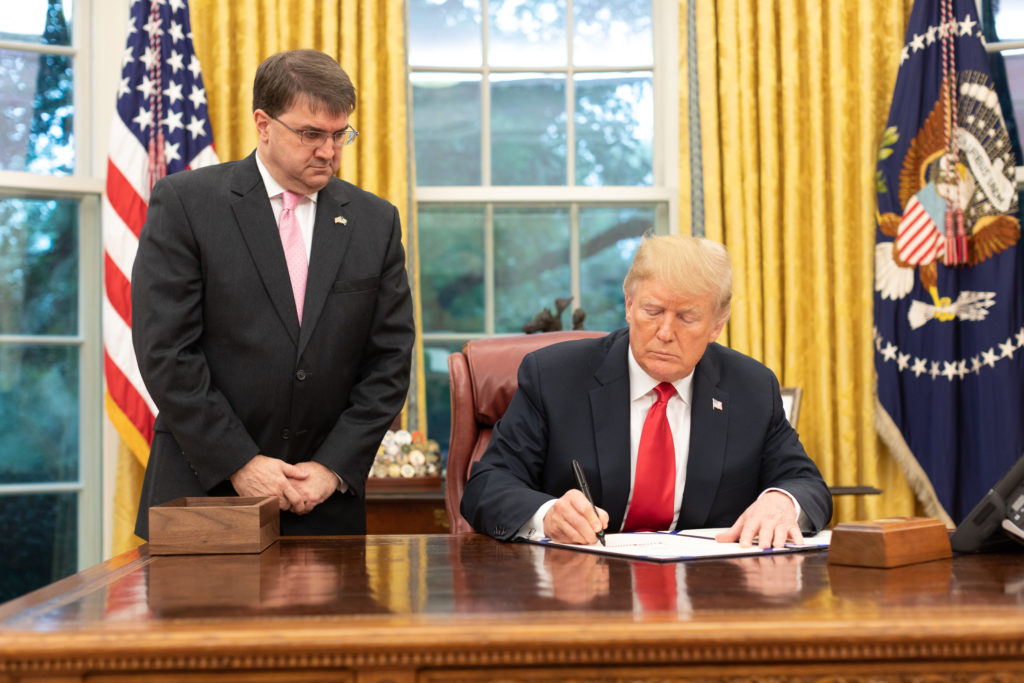
Wilkie pledged to have the drug available “in all of our VA hospitals by the end of the year.”
The VA did not respond to multiple requests from Public Integrity for treatment data, but sources say that through February only 19 veterans had received Spravato, fewer than three a month. Only eight of the VA’s 170 medical centers have been outfitted with equipment to administer the drug, and according to Stat News, the VA had only bought enough Spravato to treat 10 to 15 patients.
Trump’s hype ran into a brick wall of medical professionals, doctors and pharmacists at the VA who insisted on doing things their way. They declined to put Spravato on the list of drugs that are readily available to VA doctors, citing concerns over its dangers and effectiveness. The VA now requires its doctors to certify that patients have exhausted all other remedies to get approval to administer the drug. The Defense Department announced in April that it would make Spravato available under similar restrictions to uniformed military and families covered by the department’s health insurance.
VA’s cautious approach was reinforced in January, when the British board that approves drugs for the United Kingdom’s national health system gave Spravato a thumbs-down. The panel, the National Institute for Health and Care Excellence, known as NICE, cited a “lack of evidence” comparing Spravato with other anti-depressants, as well as serious questions about its cost-effectiveness.
We can’t do this work without your support.
Research papers questioned the validity of FDA’s Spravato trials and the drug’s adverse side effects, including three suicides.
Trump’s motivation in touting Spravato has come under congressional scrutiny. In February, California Democrat Mark Takano, the chairman of the House Veterans Affairs Committee, sent letters to Johnson & Johnson and three Trump associates who are members of Mar-a-Lago — Marvel Entertainment Chairman Ike Perlmutter, Palm Beach doctor Bruce Moskowitz, and attorney Marc Sherman. Takano asked for all communications between the three men and the VA, the White House, and Johnson & Johnson and whether any of the three owns Johnson & Johnson stock.
In an email to Public Integrity, a Johnson & Johnson spokesperson said the company’s “interactions with the individuals mentioned” in the congressional queries “was through our collaborations with the VA related to an educational awareness campaign focused on suicide prevention. The VA invited a range of organizations and individuals to support this work, including those that [are] mentioned.”
The Mar-a-Lago three said in a statement provided by a spokesman that they were asked by Trump and former VA Secretary David Shulkin and his staff to assist the VA, but merely offered advice. “We did not seek or receive any personal or financial gain,” they said. “We had no role in the VA’s consideration of Spravato.”
Congress is now investigating Trump’s promotion of hydroxychloroquine and the reassignment in April of a federal official who claims he was punished because he refused to push Trump’s cure.
“I rightly resisted efforts to provide an unproven drug on demand to the American public,” Rick Bright, the former head of the agency trying to develop an anti-COVID vaccine, said in a public statement.
Rep. Anna Eshoo, D-Calif., chair of the House Energy and Commerce’s subcommittee on health, plans to call Bright and others to testify at a hearing. Rep. Frank Pallone, D-N.J., chairman of the full committee, sent a letter to the Department of Health and Human Services’ inspector general asking for an investigation into Bright’s removal.
Dangerous drugs
While Spravato and hydroxychloroquine both have Trump’s endorsement, when it comes to their use, the similarity ends. Spravato’s adverse effects were well documented in trials and thought by the FDA to be manageable. The FDA requires a doctor to administer the drug, and for the patient to then be observed for two hours in a medical setting. Despite Trump’s urgings, the VA set up more stringent rules for patient eligibility.
Hydroxychloroquine is being dispensed more freely. Because the drug has been approved for malaria and lupus, doctors can prescribe it for other ailments. Its distribution got a big boost when, on March 28, nine days after Trump called hydroxychloroquine a “game changer,” the FDA issued an Emergency Use Authorization so hospitals and doctors could obtain the drug from the federal stockpile of critical medical supplies. Prescriptions multiplied.
The drugs’ minor effects — nausea, diarrhea, vomiting and rashes — are known, as patients have taken them for decades for malaria, lupus, and other diseases. But they can also produce psychiatric side effects that include hallucinations, manic episodes and depression, just like Spravato.
“An argument can be made to avoid these [chloroquine] drugs in patients with underlying mental illness until more data are available,” one doctor wrote in the Canadian Medical Association Journal, after finding 113 instances of psychiatric effects from taking hydroxychloroquine.
A more worrisome aspect is that the drugs can alter the timing of the heart. Though that reaction was thought to be rare, doctors have learned COVID-19 can make hearts susceptible to the drug’s effects.
CNN reported in April that 22 patients who had taken chloroquine, most at high doses, had developed heart arrhythmia and died in a Brazilian study of the drug. The French drug-safety agency reported 43 patients taking hydroxychloroquine had “heart incidents.” Sweden has advised hospitals to stop the use of the drug altogether. The U.S. National Institute of Allergy and Infectious Diseases in April recommended against taking the drug with an antibiotic because of heart effects. Around the same time a preliminary study published on medrxiv.org reported the death rate among 368 VA patients infected by COVID-19 who took hydroxychloroquine alone or with an antibiotic was more than double of those who did not. The researchers could not rule out the possibility that the drug damaged patients’ organs, including the heart.
Also in April, the FDA, which had opened the floodgates for hydroxychloroquine use after Trump’s endorsements, walked back its enthusiasm, warning of the drug’s heart effects and telling doctors to use it only in hospitals where patients could be closely monitored or in clinical trials.
A greater danger, perhaps, is that Trump’s full-throated enthusiasm has caused a run on the drug, and demand for hydroxychloroquine has increased to the point where patients who have been using it to treat other ailments such as lupus say their pharmacies have run out. The shortage particularly affects women, and women of color. Nine out of 10 adults with lupus are women, and lupus is two to three times more prevalent among women of color than among white women. A team of doctors from Brazil, where the incidence of lupus, rheumatoid arthritis and malaria run high, warned that hoarding of the drug has already caused worrisome shortages at pharmacies.
Lesson: Consider the data
The case of Spravato holds one other lesson: If Trump had consulted the VA’s data, he would have known that trying to cure suicidal intent by flooding the VA with the drug was a fool’s errand. Wilkie, who told Trump at their meeting in June of last year that 20 veterans a day commit suicide, should have known better, too.
The problem is that the VA doesn’t reach most suicidal vets because they are not treated by the VA, according to a 2019 VA report on veterans and suicide.
That should not have been news to Trump. An executive order he signed on March 5, 2019, to prevent veteran suicide and hours before he urged the VA to administer Spravato, stated that “nearly 70 percent of veterans who end their lives by suicide” had not recently received VA health care services.
Whether similar incongruities will plague the use of hydroxychloroquine as a possible treatment for COVID-19 is hard to say. First, no one can say with certainty that it works. “It’s unclear to me from personal experience and from literature as to whether this drug will be effective or not,” said Dr. Wesley Self, an emergency room physician at Vanderbilt University Hospital in Nashville, Tennessee.
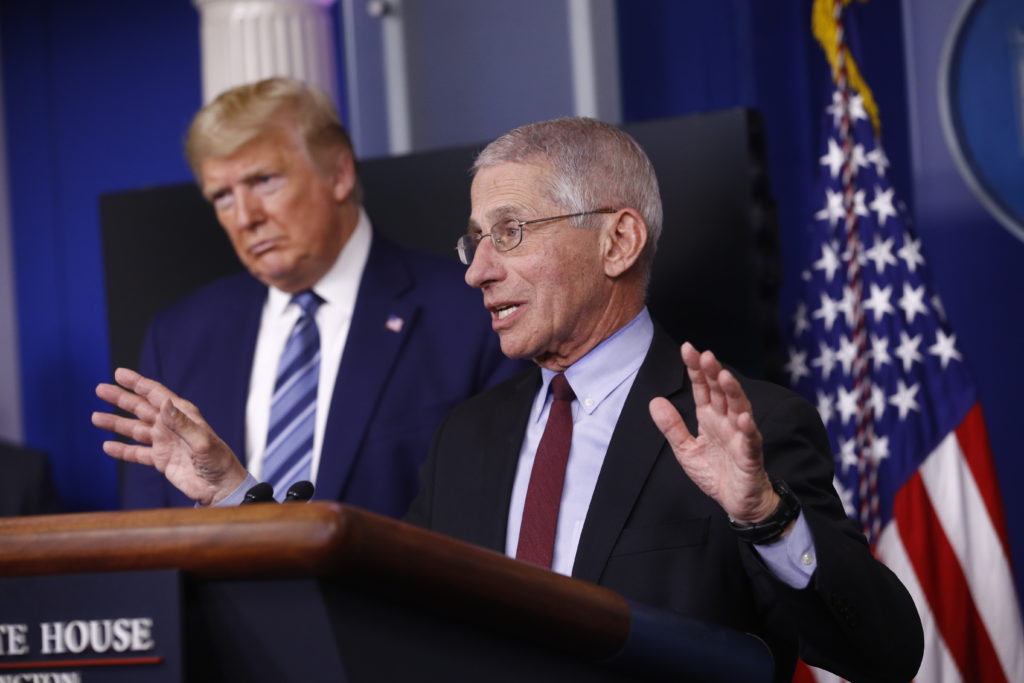
Second, other treatments are being tested. Data from ClinicalTrials.gov,a registry of trials worldwide run by the National Institutes of Health, shows researchers in the United States are conducting 82 trials or studies of 16 drugs and a handful of other COVID-19 treatments. Besides the chloroquines, which may block the virus from entering cells and reduce inflammation, scientists are looking at anti-viral agents such as remdesivir, which may block replication of viruses, and interleukin-6 inhibitors, which may reduce inflammation in the lungs, a leading cause of death from COVID-19. Researchers are conducting more than 500 anti-COVID drug trials worldwide.
On April 29 Anthony Fauci, director of the National Institutes of Allergy and Infectious Diseases, announced that a trial of 1,000 patients showed remdesivir to have a noteworthy effect as a COVID-19 treatment. The normally cautious Fauci said the drug had a “clear-cut significant positive effect.”
At a Fox News virtual town hall meeting four days later, Trump called remdesivir “very good.” But he then touted hydroxychloroquine, saying it saved lives in other countries. Trump blamed his political enemies for “false reports” on the drug. “People aren’t dying from it,” he said.
Read more in Health
Coronavirus and Inequality
Senators to DOJ: Do something about the rise in Asian hate
A letter sent to the department’s Civil Rights Division cites a Center for Public Integrity report
Coronavirus and Inequality
New bill attempts to ensure people with disabilities get equal ventilator access
Following Center for Public Integrity investigation, Sen. Ben Sasse writes bill aimed at preventing disability discrimination during the coronavirus pandemic
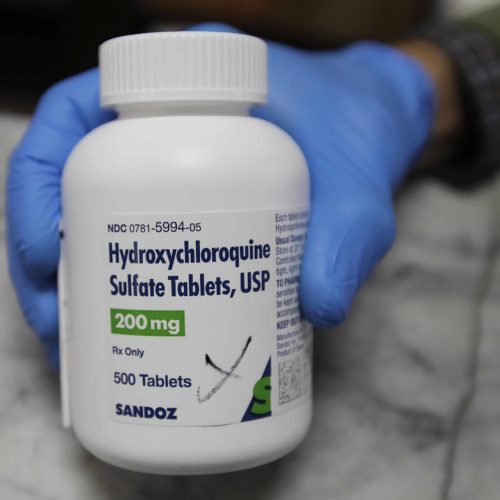
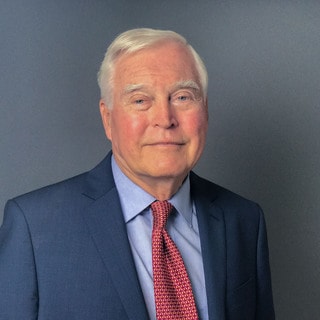

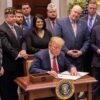
Join the conversation
Show Comments